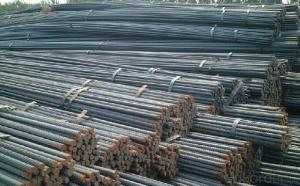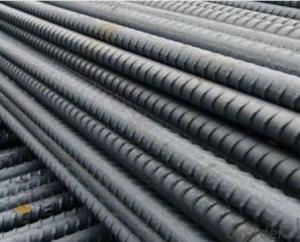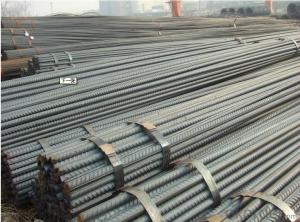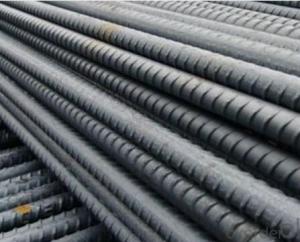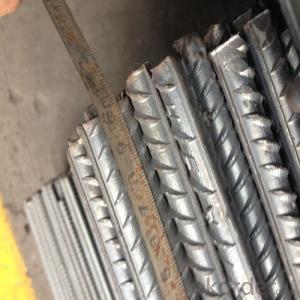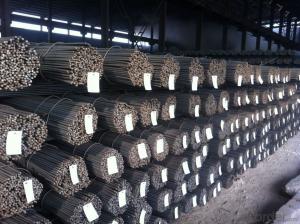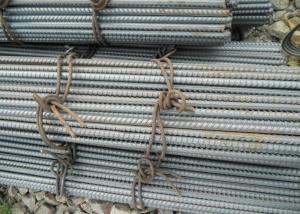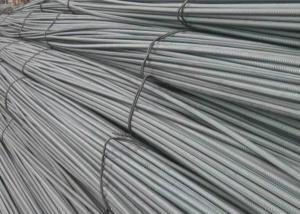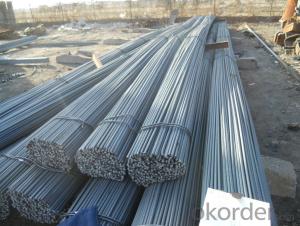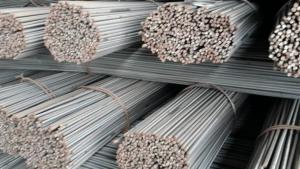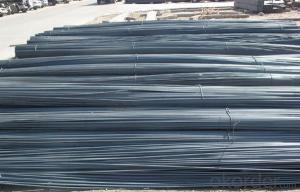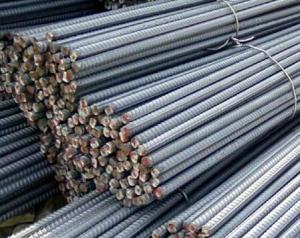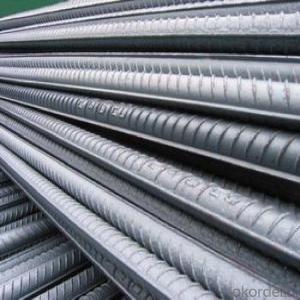Dia.12mm Alloy Steel Deformed Rebar in Coil
- Loading Port:
- Tianjin
- Payment Terms:
- TT OR LC
- Min Order Qty:
- 100 m.t.
- Supply Capability:
- 10000 m.t./month
OKorder Service Pledge
Quality Product, Order Online Tracking, Timely Delivery
OKorder Financial Service
Credit Rating, Credit Services, Credit Purchasing
You Might Also Like
Item specifice
Standard:
EN,API,DIN,BS,JIS,ASTM,AISI,GB
Technique:
Hot Rolled,Spring,EFW,Extruded,Saw,Forged,ERW,Cold Drawn,Cold Rolled
Shape:
Square,C Channel,Hexagonal,Round,Rectangular,Oval,LTZ,U Channel
Surface Treatment:
Galvanized,Coated,Copper Coated,Color Coated,Oiled,Dry,Polished,Bright,Black,PVDF Coated,Chromed Passivation
Steel Grade:
Q195,Q215,Q235,Q215B,Q235B,RHB335,HRB400,200 Series,300 Series,400 Series,600 Series,SS400-SS490,10#,20#,A53(A,B)
Certification:
ISO,SGS,BV,IBR,RoHS,CE,API,BSI,UL
Thickness:
8-32
Length:
12
Net Weight:
10
Dia.12mm Alloy Steel Deformed Rebar in Coil
Details of the Dia.12mm Alloy Steel Deformed Rebar in Coil
| Standard & Grade: | GB1499-98 : HRB335,HRB400,HRB500 |
| BS4449-1997 : GR460,GR500 | |
| CAN/CSA-G30.18-M92 : 400W | |
| ASTM A615 : Gr.40, Gr.60 | |
| Diameter: | 6mm;8mm;10mm;12mm;14mm;16mm;18mm;20mm;22mm;25mm;28mm;30mm;32mm;35mm;40mm |
| Length: | 6m,9m,12m |
| Packing: | Bundle packing |
| Origin: | China |
| Application: | Construction,Road,Machinery processing,Welding fields. |
| Delivery time: | 10-25 days |
| Shipment: | By bulk vessel or Container |
| Documents: | Mill Test Certificate,Commercial Invoice,Packing List,Certificate of Origin |
Company Introduction of the Dia.12mm Alloy Steel Deformed Rebar in Coil
CNBM International Corporation is the most import and export platform of CNBM group(China National Building Material Group Corporation) ,which is a state-owned enterprise, ranked in 270th of Fortune Global 500 in 2015.
With its advantages, CNBM International are mainly concentrate on Cement, Glass, Iron and Steel, Ceramics industries and devotes herself for supplying high quality series of refractories as well as technical consultancies and logistics solution.
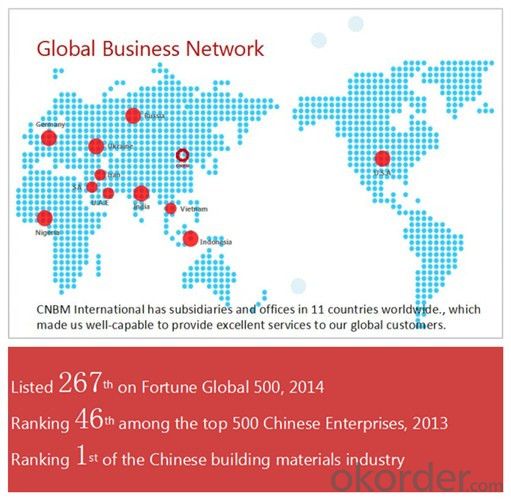
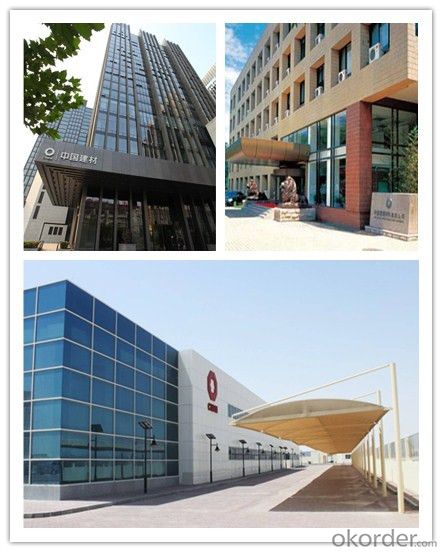
Packaging & Delivery of the Dia.12mm Alloy Steel Deformed Rebar in Coil
| Packaging Detail | Sea worthy packing /as per customer's packing instruction |
| Delivery Detail | 15 ~ 40 days after receiving the deposit |
FAQ
| Are you a trading company or manufacturer? | Manufacturer |
| What’s the MOQ? | 1000m2 |
| What’s your delivery time? | 15-20 days after downpayment received |
| Do you Accept OEM service? | Yes |
| what’s your delivery terms? | FOB/CFR/CIF |
| What's the Payment Terms? | 30% as deposit,70% before shipment by T/T |
| Western Union acceptable for small amount. | |
| L/C acceptable for large amount. | |
| Scrow ,Paybal,Alipay are also ok | |
| Why choose us? | Chose happens because of quality, then price, We can give you both. Additionally, we can also offer professional products inquiry, products knowledge train (for agents), smooth goods delivery, excellent customer solution proposals. |
| What's your available port of Shipment? | Main Port, China |
| What’s your featured services? | Our service formula: good quality+ good price+ good service=customer's trust |
| Where are your Market? | Covering more than 160 countries in the world |
- Q:What is the effect of moisture on steel rebars?
- The effect of moisture on steel rebars can lead to corrosion, which weakens the rebars and reduces their structural integrity over time. Moisture can initiate the oxidation process, causing the rebars to rust and potentially compromise the stability of reinforced concrete structures. Regular inspection and maintenance are crucial to prevent and address any moisture-related damage to steel rebars.
- Q:What are the different types of steel rebars used in railway construction?
- There are primarily four types of steel rebars used in railway construction: plain carbon steel rebars, stainless steel rebars, epoxy-coated rebars, and galvanized rebars. Each type offers specific characteristics and benefits, such as corrosion resistance, durability, and strength, to ensure the longevity and stability of railway infrastructure.
- Q:Can steel rebars be used in nuclear power plants?
- Indeed, steel rebars are suitable for deployment in nuclear power plants. They are extensively employed in diverse construction undertakings, including nuclear power plants, to fortify concrete structures. By doing so, these rebars enhance the durability and resilience of the concrete, bolstering its capacity to endure various burdens and forces. It is worth noting, however, that the utilization of steel rebars in nuclear power plants necessitates adherence to specific regulations and standards. These regulations might encompass criteria regarding the type of steel employed, its composition, and mechanical characteristics. Furthermore, the rebars must undergo meticulous quality control procedures to ensure that they conform to the required standards and are devoid of any flaws that could jeopardize the structural soundness of the power plant. On the whole, steel rebars can be employed securely in nuclear power plants, provided they satisfy the necessary regulatory requisites and quality control measures.
- Q:How are steel rebars used in industrial buildings?
- Steel rebars are used in industrial buildings as reinforcement in concrete structures to enhance their strength and durability. They are typically placed within the concrete framework to provide support and prevent cracking or collapsing under heavy loads.
- Q:Are steel rebars easy to handle and transport?
- Their relatively lightweight and compact nature makes steel rebars generally easy to handle and transport. Workers can easily lift the smaller sizes of rebars commonly used in construction without relying on heavy machinery. Moreover, the straight and elongated shape of rebars allows for convenient stacking and bundling, facilitating their storage and transportation. In addition, steel rebars can be easily cut and bent on-site using simple tools, contributing to their ease of handling during construction projects. However, it is crucial to consider that larger and heavier rebars may necessitate the use of special equipment or machinery to ensure safety and efficiency during handling and transportation.
- Q:Can steel rebars be used in structures with high moisture content in the environment?
- Steel rebars can be used in structures with high moisture content in the environment, but certain precautions need to be taken to prevent corrosion. Moisture can accelerate the corrosion process of steel, leading to structural integrity issues over time. To mitigate this risk, several measures can be implemented. Firstly, the use of corrosion-resistant steel rebars, such as stainless steel rebars, can be considered. These rebars are specifically designed to resist corrosion in high-moisture environments, making them suitable for structures exposed to moisture. Secondly, proper concrete cover thickness should be maintained to protect the rebars from direct contact with moisture. Adequate concrete cover acts as a barrier, preventing moisture from reaching the steel surface and reducing the risk of corrosion. Additionally, the use of waterproofing materials and coatings can be beneficial in preventing moisture ingress into the structure. These materials create a protective layer on the surface of the concrete, preventing water penetration and reducing the likelihood of corrosion. Regular inspection and maintenance are crucial for structures in high-moisture environments. Periodic inspections can help detect any signs of corrosion or damage early on, allowing for timely repairs or preventive measures. In conclusion, while steel rebars can be used in structures with high moisture content, it is important to implement appropriate measures to prevent corrosion. Using corrosion-resistant rebars, maintaining proper concrete cover, and applying waterproofing materials can significantly enhance the durability and longevity of structures in such environments.
- Q:Can steel rebars be used in marine environments?
- Yes, steel rebars can be used in marine environments, but they need to be properly protected against corrosion. This can be achieved by using corrosion-resistant coatings or by using stainless steel rebars. Additionally, proper maintenance and regular inspections are necessary to ensure their durability and prevent corrosion damage.
- Q:Are steel rebars suitable for use in earthquake-prone regions?
- Steel rebars are a suitable option for use in regions prone to earthquakes. They are commonly utilized in the construction industry to strengthen concrete structures, providing increased resistance against the powerful forces unleashed by earthquakes. The flexibility of steel allows it to effectively absorb and distribute energy during seismic events, thereby minimizing potential damage. In addition, the presence of steel rebars significantly improves the overall structural integrity of buildings, enabling them to withstand seismic activities more effectively. Moreover, steel rebars can be specifically designed and installed to adhere to seismic design codes and standards applicable to earthquake-prone areas, ensuring the safety of the structures. In summary, steel rebars are a dependable and efficient choice for reinforcing buildings in regions susceptible to earthquakes.
- Q:What is the process of welding steel rebars together?
- The process of welding steel rebars together involves first cleaning the rebars to remove any rust, paint, or contaminants. Then, the rebars are positioned and clamped into place using jigs or fixtures. A welding machine is used to generate an electric arc between the rebars, which melts the metal at the joint. A filler metal, usually in the form of welding rods, is added to the molten pool to reinforce the weld. The arc heat fuses the rebars and filler metal together, forming a strong bond. Finally, the welded rebars are allowed to cool down, and any excess weld material is cleaned off to achieve a smooth finish.
- Q:How do steel rebars contribute to the overall ductility of a structure?
- The overall ductility of a structure is significantly improved by steel rebars in various ways. To begin with, steel rebars possess high flexibility and can endure substantial stress before yielding or breaking. This flexibility enables them to absorb and distribute the applied load, minimizing the risk of sudden failure or collapse. By reinforcing the concrete, rebars assist the structure in withstanding external forces like earthquakes or extreme weather conditions. Furthermore, rebars augment the tensile strength of the concrete. Although concrete is renowned for its impressive compressive strength, its tensile strength is relatively low. When stress is exerted on a structure, rebars aid in resisting tension forces and averting cracking or failure. This ensures that the structure can withstand both compressive and tensile forces, thereby bolstering its overall durability and safety. Moreover, steel rebars also bolster the structural integrity by impeding the propagation of cracks. When a crack initiates in a concrete element, the rebars act as a barrier, restraining the crack's expansion and preventing rapid dissemination. This characteristic of rebars helps to uphold the overall stability and integrity of the structure. Additionally, steel rebars offer a greater degree of flexibility during construction. They can be easily bent, shaped, and joined to meet specific design requirements, granting architects and engineers the ability to create structures that are more aesthetically pleasing and functional. This flexibility also facilitates the construction process by allowing modifications or adjustments to be made without compromising the overall strength or stability of the structure. In conclusion, steel rebars play an indispensable role in enhancing the ductility of a structure. They heighten the tensile strength, absorb and distribute stress, impede crack propagation, and provide flexibility during construction. These properties contribute to the overall durability, safety, and structural integrity of a building or infrastructure, establishing steel rebars as an essential component in contemporary construction practices.
1. Manufacturer Overview |
|
|---|---|
| Location | |
| Year Established | |
| Annual Output Value | |
| Main Markets | |
| Company Certifications | |
2. Manufacturer Certificates |
|
|---|---|
| a) Certification Name | |
| Range | |
| Reference | |
| Validity Period | |
3. Manufacturer Capability |
|
|---|---|
| a)Trade Capacity | |
| Nearest Port | |
| Export Percentage | |
| No.of Employees in Trade Department | |
| Language Spoken: | |
| b)Factory Information | |
| Factory Size: | |
| No. of Production Lines | |
| Contract Manufacturing | |
| Product Price Range | |
Send your message to us
Dia.12mm Alloy Steel Deformed Rebar in Coil
- Loading Port:
- Tianjin
- Payment Terms:
- TT OR LC
- Min Order Qty:
- 100 m.t.
- Supply Capability:
- 10000 m.t./month
OKorder Service Pledge
Quality Product, Order Online Tracking, Timely Delivery
OKorder Financial Service
Credit Rating, Credit Services, Credit Purchasing
Similar products
New products
Hot products
Related keywords
